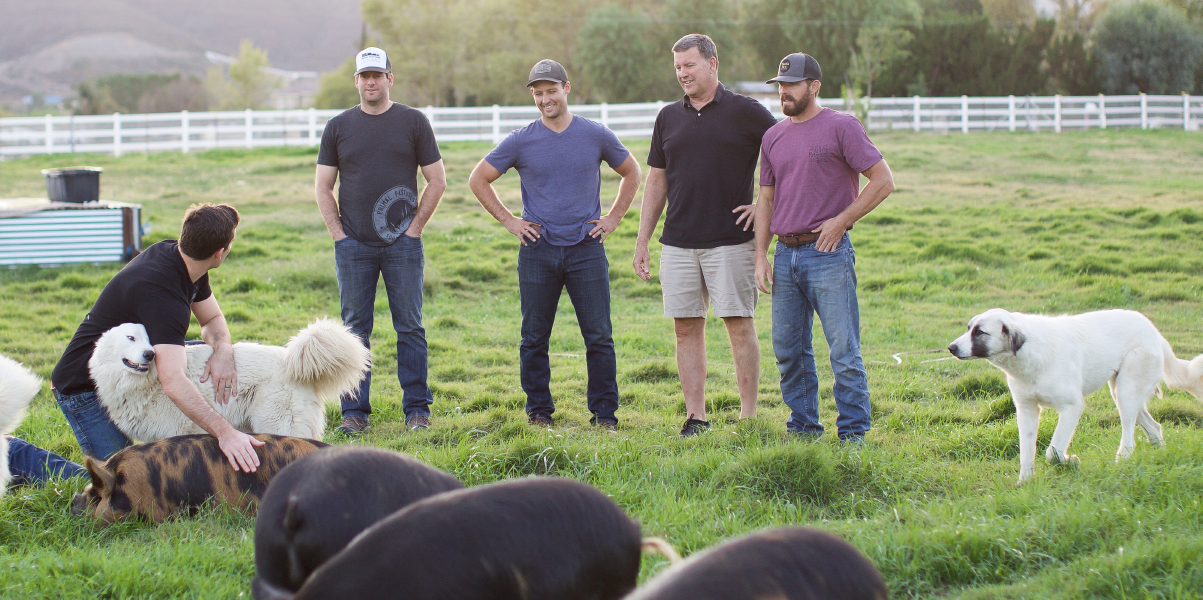
Real Farm. Real Food.
When you shop for meat at a supermarket, it’s easy to look at the piles of plastic-wrapped chicken breast and not realize where it came from. We did it for years, never connecting the meat in the store to the living, breathing animal it originated from.
That’s what we’re trying to change, and why we’re so passionate about sharing our pasture raised meat with you directly. If you’ve never purchased from a small farm before, there’s three things that you should know.
Whole animals.
Simply put, a chicken is more than a breast, and a pig is more than bacon. We take so much time and care to raise these animals right, we feel a personal responsibility to make use of the entire animal. That means opting for less popular cuts like drumsticks and ground meats, using bones and feet for bone broths, and getting adventurous with offal (or feeding your dog raw!).
It also means that we won’t ramp up production to meet the high demand for chicken breasts and bacon, unless we know we can use all the accompanying off cuts, organs and bones.
Grown, not made.
When some companies run out of product, they simply make or order more. When we run out of chicken breast or whole chickens, you may see the dreaded “sold out” sign for some time- and that’s ok. That means we’re taking our time to grow more, and do it the right way.
There’s definitely a path to ramp up production quickly, but it comes with compromises we’re not willing to make. Our chickens are a slow growth breed, taking 12-13 weeks to reach market weight, as opposed to the industry standard of 6 weeks. To grow them faster, or add too many more to our pasture would sacrifice the health of the bird and the health of the land. Not worth it.
Small family farm.
Although we’ve grown in popularity over the past year, we’re still a small team and family still comes first. That means every member of the Primal team is also out in the field (so we might not get to answer every phone call), passionate about regenerative agriculture (we may geek out on you from time to time) and feeding this same meat to our families (meaning no compromises ever).
We’re so thrilled to be sharing our pasture raised meats with even more families across the country, and really appreciate your support as we grow!
If you have any questions, or just want to say hello, feel free to drop us a line at info@primalpastures.com. We promise we’ll get back to you as soon as the chickens are moved and pigs are happy.

